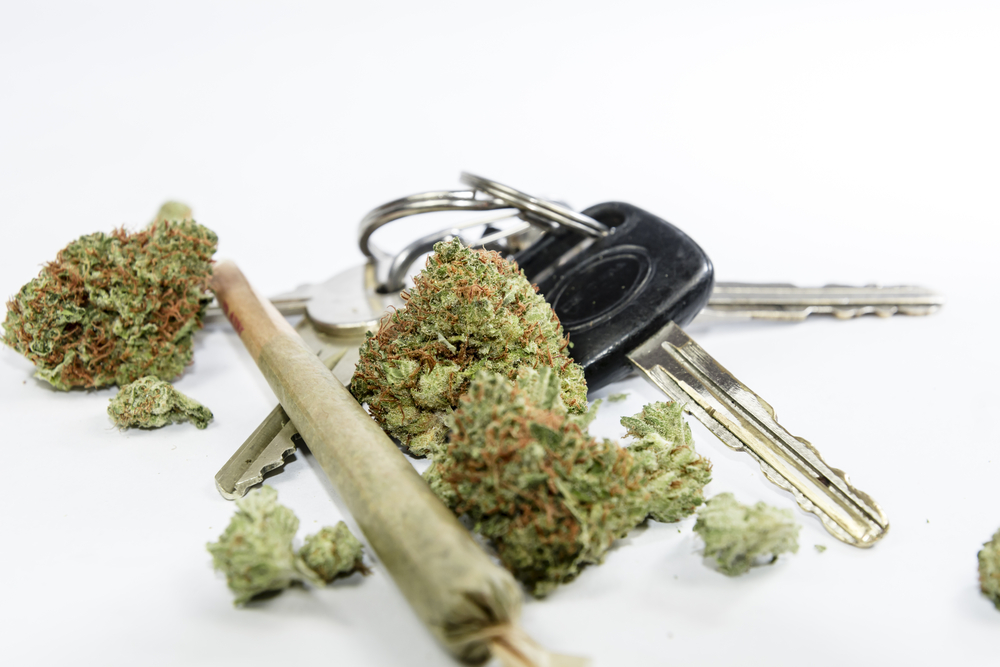In just a few months, the sale of marijuana for recreational use will be legal in California. Cannabis use will hardly be new to the state, though. It’s been estimated that between 750,000 and 1.1 million California residents use medical marijuana. In addition, 43% of respondents to a Los Angeles Times poll conducted in late 2016 indicated that they had used marijuana recreationally.
It’s not yet clear how legalization will impact the rate of marijuana use, but the California Department of Public Health wants residents to be fully informed before the new law takes effect. Toward that end, the Department has devoted a section of its website to information designed to help Californians who choose to use marijuana recreationally do so safely.
The website contains a variety of information about health risks, the differences between forms of marijuana, and the impact regular cannabis use can have on the brain development of teens and young adults. The site also includes this all-important reminder: though it may be legal to use marijuana, driving under the influence of marijuana is still a crime—and still dangerous.
Driving under the Influence of Marijuana Illegal in California
Driving under the influence of any substance that can impair your ability to operate a vehicle safely is a crime in California. A driver can be convicted of operating a motor vehicle under the influence of legally consumed alcohol or prescription drugs, and the same will be true of legal cannabis.
However, enforcing the law with regard to marijuana is much more complicated than enforcing alcohol-related DUI laws. There’s no roadside test to determine just how much cannabis is in a driver’s bloodstream, and no clear measure of how much is too much.
DWI Statistics in the United States
The most recent national roadside survey conducted by the National Highway Traffic Safety Administration (NHTSA) revealed a significant increase in marijuana use among drivers. 12.6% of weekend nighttime drivers tested positive for THC—a metabolite in cannabis—in 2013-14, compared with 8.6% in 2007. The percentage of drivers with THC in their systems significantly exceeded the percentage of drivers testing positive for alcohol.
How Does Marijuana Use Affect Driving?
Most people agree that marijuana use has an impact on a driver’s ability to safely operate a motor vehicle. However, there is much disagreement about the degree to which driving is impaired and how that impairment compares with alcohol impairment. One reason for this dispute is that the impact of alcohol on a driver’s ability to safely operate a motor vehicle has been studied far more thoroughly than the impact of cannabis.
After years of research and legislative adaptation, a consensus has emerged. All 50 U.S. states now make it a crime to operate a motor vehicle with a blood alcohol concentration (BAC) of .08% or greater. Data regarding marijuana-related impairment is sparser and less consistent.
The Centers for Disease Control and Prevention (CDC) provides information about marijuana use and driving that has been aggregated from various studies, and has concluded that:
• Marijuana use can slow reaction time
• Marijuana use impairs decision-making capacity
• Marijuana use can impede coordination
• Marijuana use may distort perception
Unsurprisingly, the risks associated with driving under the influence of marijuana and alcohol in combination are greater than those associated with either alone.
With marijuana legalization spreading and the increasing use of medical marijuana, researchers are seeking clear answers to difficult questions about just how seriously marijuana use impairs drivers and how to measure that impairment.
The National Institute on Drug Abuse Cannabis Statistics
Researchers from the National Institute on Drug Abuse recently used a driving simulator at the University of Iowa to test the impact of cannabis on driving.
Because marijuana is often used in combination with alcohol, the Institute tested not just high and low concentrations of THC, but also alcohol alone, alcohol combined with cannabis, and placebo. While researchers collected a wide range of data, the report released focused on drivers weaving and/or leaving the appropriate lane.
Marijuana users with blood concentrations of 13.1 ug/L of THC showed an increase in weaving similar to that of study participants with a blood alcohol concentration of .08%. However, in this limited study marijuana use did not appear to impact either weaving speed or the likelihood that a driver would stray out of his or her lane.
Alcohol v. Marijuana Driving Statistics
In 2009, researchers from the Yale University School of Medicine reviewed more than 100 existing studies to conclude that:
• Between 6% and 32% of road accidents involved a driver who was under the influence of marijuana
• Cannabis use impacted some driving skills at doses as low as 1/3 of a joint
• Drivers under the influence of marijuana have difficulty managing unexpected events
• Maximum impairment is typically found 20-40 minutes after smoking marijuana
• The range driving skills impacted by marijuana use increases at higher doses
However, the review also noted a number of open questions. For example, despite the apparent correlation between marijuana use and traffic accidents, researchers did not find clear evidence of a causal relationship between cannabis use and crashes.
In addition, some of the findings are too narrow to allow for general conclusions. For instance, the maximum impairment time noted above applies only when marijuana is smoked. The timeline may differ significantly for other types of cannabis use, such as consumption of edibles.
Los Angeles Liability for Marijuana-Related Car Accidents
Although the specifics remain unclear and additional research will be required before states are able to set forth clear, consistent rules akin to those regulating alcohol use and driving, these key points are clear:
• Marijuana does impact at least some driving-related skills and functions, making a driver less equipped to safely manage a vehicle
• Driving under the influence of marijuana is illegal in California, and will remain so when sale of marijuana for recreational use becomes legal
• Operating a vehicle while impaired by cannabis use is negligent, and opens up the driver to civil liability for any injuries or other damages associated with the crash
Personal Injury Attorney for DWI Accidents
If you’ve been involved in an accident with a driver who was impaired by cannabis use, you may be entitled to compensation. Compensation in this type of case often includes:
• Reimbursement for medical expenses
• Payment for projected ongoing medical or rehabilitative costs
• Compensation for lost income
• The cost of repairing or replacing your vehicle
However, proving liability in a marijuana-related case may not be as straightforward as proving liability when the other driver was impaired by alcohol. With so much gray area surrounding the degree of impairment associated with cannabis and the amount required to trigger impairment, it is to your advantage to have an experienced car accident attorney on your side.










